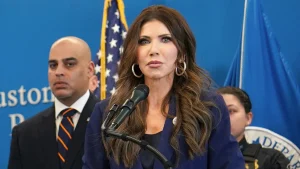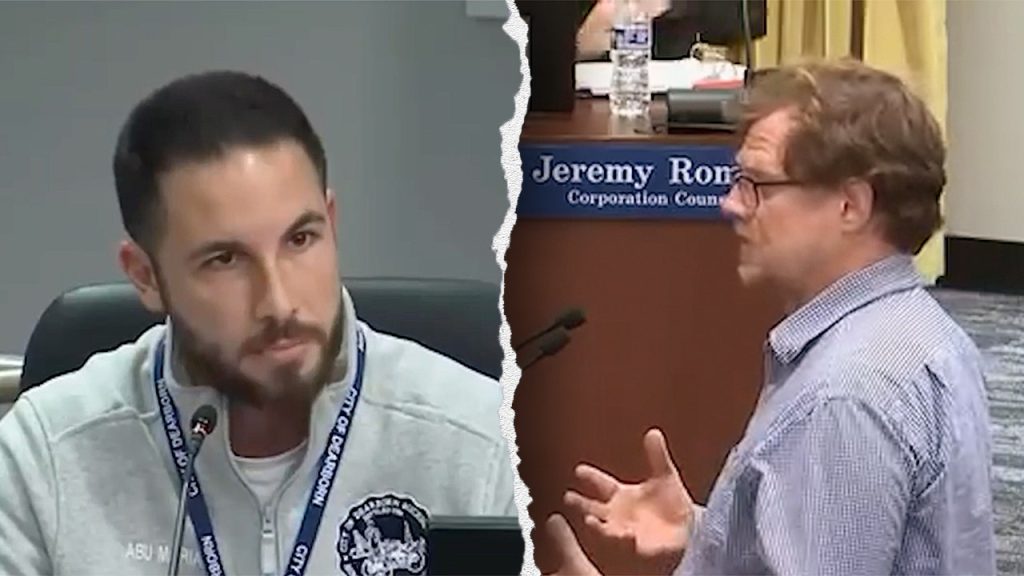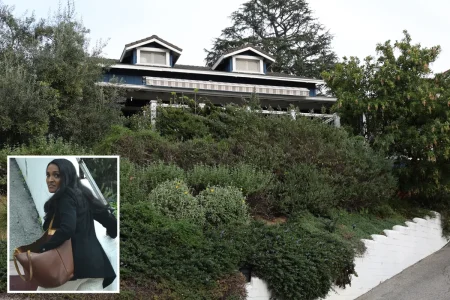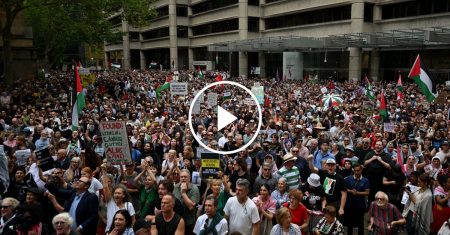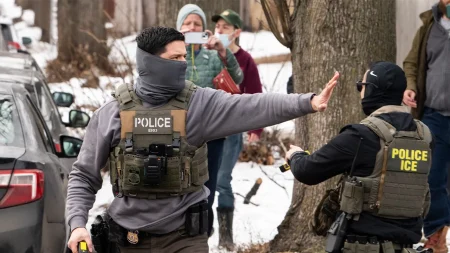Controversy Erupts in Dearborn Over Street Signs Honoring Local Publisher
In a tense exchange that has sparked debate about leadership, inclusivity, and free speech in America’s most concentrated Muslim community, Dearborn Mayor Abdullah H. Hammoud told a Christian resident he was “not welcome” in the city during a recent council meeting. The confrontation occurred after resident Edward “Ted” Barham voiced concerns about new street signs honoring Osama Siblani, publisher of the Arab American News. The exchange, which quickly escalated beyond a discussion about street signage, has raised questions about civic discourse and religious tolerance in a city known for its diversity and cultural significance.
The incident unfolded when Barham, identifying himself simply as a “Dearborn resident,” expressed objections to Wayne County’s decision to place honorary street signs for Siblani at intersections along Warren Avenue. Barham claimed Siblani was “a promoter of Hezbollah and Hamas” and quoted statements he attributed to the publisher about martyrs and armed resistance in Palestine. Barham suggested the signs were as provocative as naming streets after terrorist organizations and concluded his remarks by quoting Jesus’ Beatitudes: “Blessed are the peacemakers.” While council members attempted to clarify that the city had no jurisdiction over the county’s decision to place the signs, the discussion rapidly moved beyond procedural clarifications.
Mayor Hammoud’s response dramatically intensified the exchange. Rather than simply explaining the city’s lack of authority over county decisions, the mayor suggested Barham avoid driving on Warren Avenue or “close your eyes while you’re doing it.” Hammoud then launched into personal accusations, calling Barham “a bigot,” “racist,” and “Islamophobe” before delivering the statement that has since drawn widespread attention: “Although you live here, I want you to know as mayor, you are not welcome here. And the day you move out of the city will be the day that I launch a parade celebrating the fact that you moved out of this city.” This stark declaration from an elected official to a constituent has raised concerns about whether public servants should determine which residents “belong” in their communities based on political or religious viewpoints.
The controversy stems from Wayne County’s August decision to honor Siblani, whose Arab American News has been influential in Dearborn’s large Arab American community. The county commission approved the honorary designation independently of city council action, though Mayor Hammoud and other local officials attended and spoke at the unveiling ceremony. Siblani himself is a complex figure whose publications have sometimes featured viewpoints that generate controversy, particularly regarding Middle Eastern politics. For supporters, he represents an important voice for Arab Americans in Michigan; for critics like Barham, some of his editorial positions raise concerns about extremism.
Dearborn, with its approximately 47% Arab American population, has long been a cultural crossroads where American democratic traditions intersect with diverse religious and political perspectives. The city’s leadership faces the ongoing challenge of representing this diversity while maintaining civic harmony. The confrontation between Hammoud and Barham reflects broader tensions that many diverse American communities navigate: how to balance respect for different cultural and religious identities with the principles of equal citizenship and free expression. For many residents watching this exchange, the fundamental question became whether their local government would represent all constituents equally, regardless of faith or political viewpoint.
The incident highlights the delicate balance required in leadership positions within diverse communities. While elected officials naturally advocate for constituents who share their values, American democratic norms typically expect them to represent all residents, even those with whom they disagree. Neither Mayor Hammoud nor Siblani responded to media requests for comment about the incident, and attempts to reach Barham were unsuccessful. As Dearborn continues to evolve as a center for Arab American culture and Muslim life in America, this exchange serves as a reminder of the ongoing challenges in building inclusive communities where different voices—even controversial ones—can participate in civic dialogue without being told they don’t belong. For residents of Dearborn and similar communities across America, the question remains: how can we build cities where diverse perspectives contribute to a shared civic life rather than divide it?


